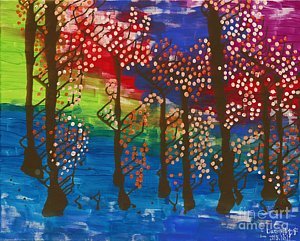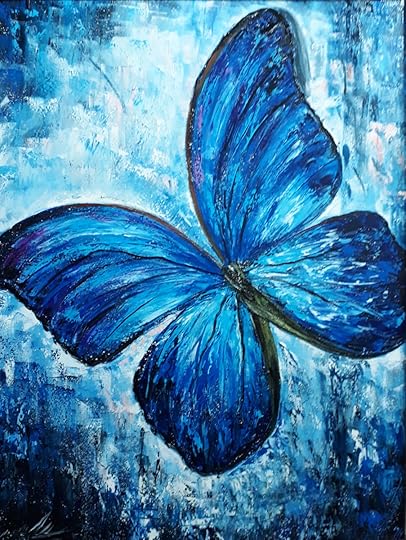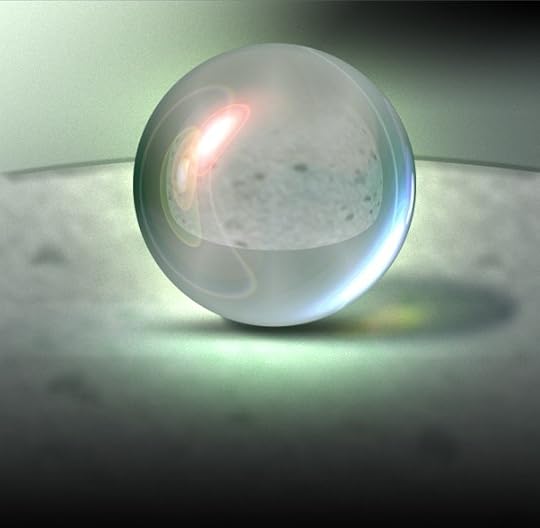The Ongoing Need for Proper Autism Representation in Fiction

I started thinking about this topic (again) a few weeks ago. The book club I attend at my local library had been discussing recommended books, and whether we agreed they should be recommended, or not. One of the titles that came up was The Curious Incident of the Dog in the Night-Time. Now, I hate this book. I read it about 6 or 7 years ago, after hearing that it featured an autistic/Asperger’s narrator. And it does. But I really, really wish it didn’t.
What’s so wrong with Curious Incident? Well, in short, it’s offensive as hell. The premise is that a neurodivergent boy (apparently a savant, who has intense skills in some academic subjects but little to no comprehension of human behavior and the world around him) discovers his neighbor’s evidently murdered dog (lovely) and he sets out to uncover whodunit. There are about a million things wrong with this premise.
It’s highly unlikely that someone with such impaired functioning would be capable of the level of deduction required to solve this sort of puzzle
Not very probable that he would care so much, since it wasn’t even his dog (and it is not that he doesn’t have emotions; he’d feel sad about the dog, but genuinely not see how this affected him in any way)
Considering the narrator is presented as having intense anxiety, the very notion of him going into crowded, noisy, busy downtown London by himself — which does happen in the plot — to resolve the mystery is downright laughable
Along the way, the narrator continually talks down about and to neurotypical people, gets mistreated by the police, the neighbors, his family, pretty much the whole human race, and acts as if he’s somehow superior to the general public because he’s different. None of this is helpful towards teaching the NT population about autism — because it’s blatantly wrong.
This portrayal of neurodivergence makes autists look like androids, unable to process emotion or give a damn about other people, always focused on our own wants and the rest of the world can take a hike; that we’re hateful of everything we don’t understand; prone to condemnation and violence; just plain irritating to our families; and worthy of pity. That’s why I hate, hate, hate this book.
And it really rankles me when professionals in education, social services, and medicine see it as an excellent demonstration of how someone from “the other side” operates. They think this because they don’t truly know what we feel and how we take in information, how our daily environment affects us, or that we’re NOT robots playing at being human — we ARE humans who simply process this world differently than they do. And why don’t they know this? Simple: They don’t take the time to ask us.

So, anyway, at the book club somebody brought up this garbage novel, and how it was “so enlightening.” (Ahem.) This individual kept referring to the “disease” of autism, and finally I about lost it. I nearly shouted, “It’s not a disease!!”, causing many heads to turn towards me in interest, but the speaker in question replied with a dismissive, “Whatever — the problem of autism,” and then just carried on as if I’d never said anything.
To say that I was fuming is over-simplifying my feelings on the matter. I wanted to write this post weeks ago, but honestly I just got furious every time I thought about it.
But this is exactly why it’s so important that I march to my soapbox and raise my megaphone — because this is what too many people think autism to be. A disease, an affliction, a problem that requires fixing. We need to get out there and yell from the rooftops the truth.
Now, while we’re on the subject, do I feel that the character of Christopher Boone himself in Curious Incident is completely unsympathetic? No, actually, I don’t. There were some things about this fictional autistic narrator that did ring true — his anxiety, his struggle to read faces, his greater attachment to animals than to people, his preference for math and puzzles — logical, tangible things rather than inconcrete emotions or shifting opinions that can’t be scientifically quantified. Most of these traits can be found in many spectrum folks. (Not me, because math and I do not get along.) But this is where the responsibility for writing such a novel correctly falls back on the author, Mark Haddon. Haddon has admitted he really doesn’t know much about autism, and this would be why Christopher’s symptoms read like a medical text.
And I’m not the only Actually Autistic who concurs this story displays negative, harmful stereotypes, and should not be referred to as a great example of ASD in fiction. (Scathing reviews can be found on Goodreads.)

Since so many of us are lacking a good rep of ourselves in books and movies, what should be done about it?
Well, I stand by my crusade for a flood of Own Voices novels or nonfiction memoirs written by Actually Autistics to enter the market. I also think that most of these should be self-published or small press, to reduce the chances of a big name company jumping on the “it’s cool to be autism aware” bandwagon. (How do we think Curious Incident soared to the top of the bestseller list to begin with?) Maintaining the integrity of our mission needs to stay paramount in the eyes of editors and agents — not dollar signs. (See, we understand “normal” people just fine.)
I also think that too much editing would hinder the goal; trying to “water down” our autism and make our experiences and perceptions “more relatable” to the general public would defeat the point. They already don’t relate to us — the idea is to increase their knowledge, not cater to their misconceptions.
And we need more variety — a spectrum means a range of conditions based on a similar foundation. There’s a saying that “if you’ve met one autistic person, then you’ve met one autistic person.”
In my own fantasy series, I made both the characters with autism female (neurodivergent females are already very underused in fiction, and there are bunches of us in the real world). Madison Collins is in a lot of ways me as an adolescent; Avery McKinnon is, for many intents and purposes, me as an adult. They have some commonalities, but remain separate individuals, who have different ambitions and goals, and view their autism differently, too. Since I released my debut novel last year, I’ve received rave reviews for these characters — from those who have relatives or close friends on the spectrum, as well as from those who don’t.
We also need to increase the number of fictional families who don’t consider their ASD children “broken” or “damaged goods.” Since this mindset is (horrifingly) so prevalent in our society, this could take time to change. But if we don’t start, will we ever get there?

We struggle our entire lives to be accepted as ourselves. Facing further obstacles due to autism now being a buzzword in the media only complicates things. Expanded autism awareness has not resulted in greater autism understanding or inclusion.
The notion of us being a curiosity of behavior needs to be dropped. We are the modern equivalent of the circus freak — stared at, snickered about, even feared. I don’t want us becoming a joke, or a cliche. I really want people to realize that we are not the punchline — that we’re just as valuable as everybody without autism.
Will it happen in my lifetime? Perhaps? But I’m also releasing 2 spectrum children into the world one day — and I sincerely hope they won’t have to struggle the same way I did.
So, it starts with us. It starts now.

Daley Downing's Blog
- Daley Downing's profile
- 36 followers



